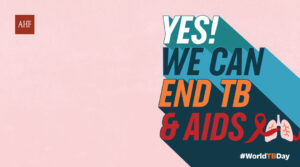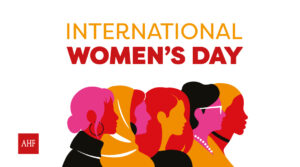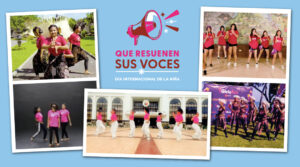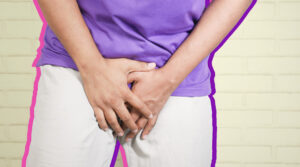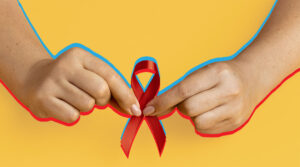Mexico City, Mexico. On March 8th, 2022, the International Women’s Day, AHF countries’ in Latin American and Caribbean, joins international actions to improve the economic condition of women after the Covid-19 pandemic, to guarantee the right to health, and to a life free of violence, and to achieve a world free of aids.
In the middle of the sanitary world situation, we must not forget that HIV and aids continue being a pandemic that affects especially women, due to social and economic vulnerability provoked by their surroundings.
For example, in the Caribbean, 38% of HIV new infections were acquired by women and girls between 15 and 49 years of age, according to the most recent Report on HIV epidemic published by UNAIDS in December 2020. In Latin America, although the pandemic is concentrated in men, women and girls between 15 and 49 years old represent 23% of new HIV infections, according to 2020 data1.
According to UN Women estimates, as a consequence of the COVID-19 pandemic, nearly 47 million women and girls have fallen into extreme poverty conditions, and it is foreseen that they won’t recover their pre-pandemic levels until 2030.
Furthermore, the pandemic also increased violence against women and girls. A series of surveys conducted by UN Women in 13 countries revealed that almost half of women affirmed that they, or a woman they know well, have experienced some kind of violence since the pandemic began.
Gender violence puts women in a particularly vulnerable place facing HIV. UNAIDS has pointed out that women who receive physical or sexual violence from their partners have 1.5 times more possibilities of getting HIV thah women who don’t experience it.
Throughout its history, AHF has acknowledged, first hand, gender vulnerabilities, poverty, sexual work or transactional sex, migration status, and other factors, which alienate women from the full enjoyment of their right to health, and keeps working to close the gap.
In this International Women’s Day, in AHF acknowledge the historic struggle that women living with HIV have fought to promote the creation of public policies that end discrimition and promote respect of their sexual and reproductive rights.
About AIDS Healthcare Foundation (AHF), the largest global AIDS organization, currently provides medical care and/or services to over 1.7 million people in 45 countries worldwide in the US, Africa, Latin America/Caribbean, the Asia/Pacific Region and Eastern Europe. To learn more about AHF, please visit our website: www.aidshealth.org, find us on Facebook: www.facebook.com/aidshealth and follow us on Twitter: @aidshealthcare and Instagram: @aidshealthcare.
MEDIA CONTACT FOR LATIN AMERICA AND THE CARIBBEAN:
Sergio Lagarde Moguel
Marketing & PR Director
+521 55 5419 08 76
email: [email protected]

